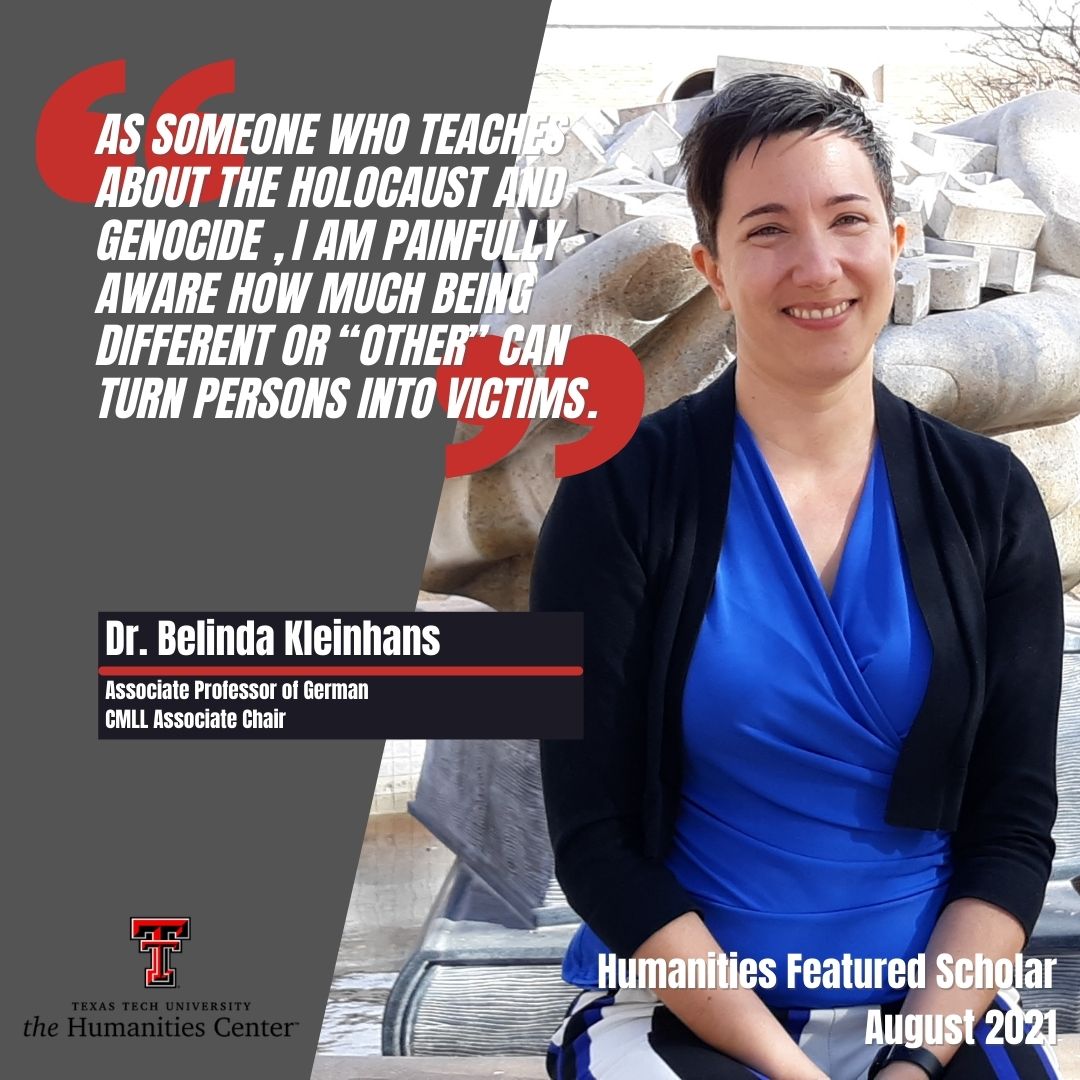Featured Scholar - August 2021

What are you watching/streaming?
I like complex SciFi like The Expanse or Westworld.
What games are you playing?
I'm not really into playing games as a social activity, but I have been known to play
4x games (like Sid Meier's Civilization) – against the computer – to relax when I'm between research projects or need some
time to let research ideas simmer. If wood-crafted, unusual puzzles count as games,
I play these, too.
What are you listening to?
On summer hikes, to cicadas – and every day to the birds in my backyard. A great song
that includes bird song is Kate Bush's “Aerial”! I also like listening to minimal
music when I'm writing, and am these days mostly listening to Max Richter. I especially
like his album Infra that sounds as if background noise slowly turns into music.
What are you reading?
I'm always reading a few books at the same time (and in different languages) – some
for pleasure, some for work. In the “for pleasure” area, I'm re-reading Jeff Vendermeer's Area X trilogy – the fact that it doesn't offer any answers just makes me want to go back
over and over. I always have a book of poetry close by; currently I'm reading poems
by Marion Poschmann.
Somewhere between pleasure and work, I'm reading Marcel Beyer's Kaltenburg and Sharon Dodua Otoo's Adas Raum – the former for my interest in literary animal studies, the latter because it is important for decolonizing and diversifying the German literary canon.
For work, I'm reading lots of Derrida, Agamben, and Butler.
What are you writing/thinking about?
Animals. And Ethics. And Otherness. And how we can relate to Otherness without having
to bag it, tag it, own it, or destroy it. As someone who teaches about the Holocaust
and genocide (I teach GERM 2312 every semester), I am painfully aware how much being
different or “other” can turn persons into victims. The figure of the animal in German-language
literature of the 20th century is an amazing opportunity to probe and question the
limits of (human) ethics when encountering an Other – and especially after the Thanatopolitics
of the Third Reich (see Esposito), many literary authors employ textual animals in
their writings to broaden our understanding of being in the world in an ethical way.
I am investigating this posthuman postwar literary philosophy in more-than-human stories.
Humanities Center
-
Address
Texas Tech University, 2508 15th Street, Weeks Hall 221, Lubbock, TX 79409-1002 -
Phone
806.742.3028 -
Email
humanitiescenter@ttu.edu
